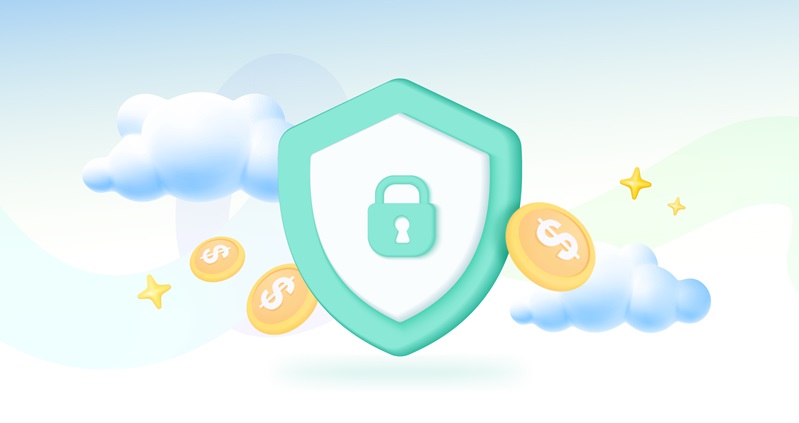What is financial fraud? Definition, examples, and how to protect yourself
The rise of AI and online scams is making financial fraud more sophisticated. Learn how to protect your identity and money from different types of financial fraud schemes.
Home > Online Safety > What Is Financial Fraud?
Financial fraud definition: Financial fraud involves deceptive tactics used to steal money or assets, including identity theft, credit card fraud, and securities scams.
Technological advancements and fraud: Modern technology like artificial intelligence (AI) and the widespread use of social media has made scams harder to detect and more personalized.
How to protect yourself: Preventative steps like using strong passwords, monitoring your credit report, and being cautious online can help reduce your risk of becoming a victim of financial fraud.
Definition of financial fraud
Financial fraud involves using deceptive practices, such as deceit, trickery, or other illegal methods, with the intention to deprive an individual or organization of their financial resources. Financial fraud can be any crime involving finances or illegally acquired funds, and usually involves scamming someone out of their money using theft or deceit tactics.
How financial fraud has become more advanced
Anyone can fall victim to financial fraud, regardless of age and income level, therefore, it is important to be able to identify various types of financial fraud and potential fraud attempts and learn how to take measures to help protect you and your finances.
Nowadays, social media and other public online platforms have made it easier for scammers to learn more personal information about their targets to make their fraud attempts sound more convincing. At a time when millions of people are constantly online and posting personal information on social media and other platforms, it can be easy to forget that what you share can be available for almost anyone to see. This is where scammers can take advantage, by learning about your personal life, to use that information to attempt to commit fraud.
To make matters worse, the advancement of artificial intelligence (AI) over the last few years has further altered the methods used by scammers, making it harder to detect fake robocalls and phishing emails.
Different types of financial fraud
Financial fraud can happen in many different ways; some of the most common methods include identity theft, insurance, credit card, and securities fraud.
Identity theft
Identity theft includes the fraudulent use of someone’s personal information, such as their bank account information, name, or Social Security number, to open different accounts, make illegal purchases, or to commit other financial crimes. Thieves can use your personal information to access your financial accounts, open new accounts without your permission, or make unauthorized transactions. Identity theft can also be used to commit different types of financial fraud, like credit card fraud discussed below.
Identity theft can have severe financial consequences, including monetary losses, damage to your credit score, and potentially even legal problems. Therefore, it is important that you protect your personal information and do not give out sensitive details, such as your bank account information or Social Security number, to someone you don’t trust.
Insurance fraud
Insurance fraud can be committed by the buyer or seller of an insurance contract. For the purpose of this article, we will be focusing on the act committed by the seller. This includes selling insurance policies to someone from nonexistent companies, not submitting premiums, or churning policies to make commissions. Fee churning is a type of financial scam that occurs when intermediaries take commissions and deplete the initial premium to the point that claims can no longer be paid.
Credit card fraud
Credit card fraud occurs when your information is used to make unauthorized purchases or withdrawals with your credit card. This type of theft can be done physically, by someone stealing your credit card, or digitally, by someone gaining access to your credit card details (through phishing, skimming, or data breaches).
Identity theft can also be used to commit credit card fraud, which is when someone uses your personal information to open a new credit card and make unauthorized purchases under your name. This can drastically impact your credit score, so it is important to be aware of your transactions and report even the smallest discrepancy to your bank.
Securities fraud
Securities fraud, also known as stock fraud, is a broad term for fraudulent activity carried out by brokers, investment firms, companies, and even financial advisors. These types of financial fraud schemes aim to manipulate investors into buying or selling securities by using false information and different tactics, ultimately resulting in financial losses to the investor for the personal gain of the perpetrator.
Perpetrators use many different tactics to commit securities fraud, which are further discussed in our guide to common financial scams. Many cases occur by providing investors misleading information, purposefully offering bad financial advice, or even acting on inside information. Securities fraud can cause investors significant losses and can potentially lead to criminal charges.
How to protect yourself against financial fraud
With fraud attempts getting more advanced and prevalent, it may be wise to take measures that help protect your identity and secure your data. It is important to stay alert at times when you may be suspecting that your finances or identity are at risk.
Here are some measures you can take to help potentially minimize the risk of fraud:
Be careful what you post online: Scammers can easily harvest information about people online, helping their claims sound more convincing. You might want to refrain from posting personal information, such as where you live, on your social media channels or other online platforms. Review your privacy settings on your social media accounts and use two-step verification when available.
Create strong bank passwords: With online banking becoming more popular, it is important to stay informed and protect your accounts. Ensure you create strong passwords for your banking accounts, stay informed on which institution you are working with, and double-check that their website is legitimate, to help avoid banking scams. Online banking can be safe, but there are still websites with ill intent, therefore, it is better to double-check than potentially be scammed.
Be skeptical: If you are unsure if a call, voicemail, email, text message, or something else is legitimate or not, double-check who sent it to ensure authenticity. With AI making it harder to detect scams, it might help to stay skeptical and verify a person’s (or institution’s) identity before giving out sensitive information.
Monitor your credit report: Stay on top of your credit report and contact your financial institution as soon as you notice any suspicious activity.
Make a digital estate plan: A digital estate plan can help safeguard your online accounts from potential fraud and theft. It can be difficult to keep track of all your online accounts — from social media to banking and even streaming platforms — so keeping a ‘master list’ can be helpful for you and your family.
- Know who your financial advisor is: Even though financial advisors are supposed to help you, some can still gain your trust just to take advantage of you. When choosing a financial advisor, you might want to do your research and ensure they are a trustworthy and reliable person. You may want to look for someone who is a fiduciary, and check for certifications such as a certified financial planner (CFP®) or certified public accountant (CPA) to better ensure they are acting in your best interest.
Bottom line
Financial fraud can happen to almost anyone. As technological advancements are making it harder to detect fraud, it is important to stay informed as a consumer to help protect yourself against fraudulent activity. It is better to stay wary to avoid being victimized, but you might also want to take extra measures to protect your identity and sensitive information.
Keep your financial information secure and start saving with Raisin today. The Raisin marketplace gives you access to various savings products with competitive interest rates all in one dashboard, so you don’t have to worry about keeping track of multiple passwords. Sign up today and start maximizing your savings potential!
The above article is intended to provide generalized financial information designed to educate a broad segment of the public; it does not give personalized tax, investment, legal, or other business and professional advice. Before taking any action, you should always seek the assistance of a professional who knows your particular situation for advice on taxes, your investments, the law, or any other business and professional matters that affect you and/or your business.

.jpg)
